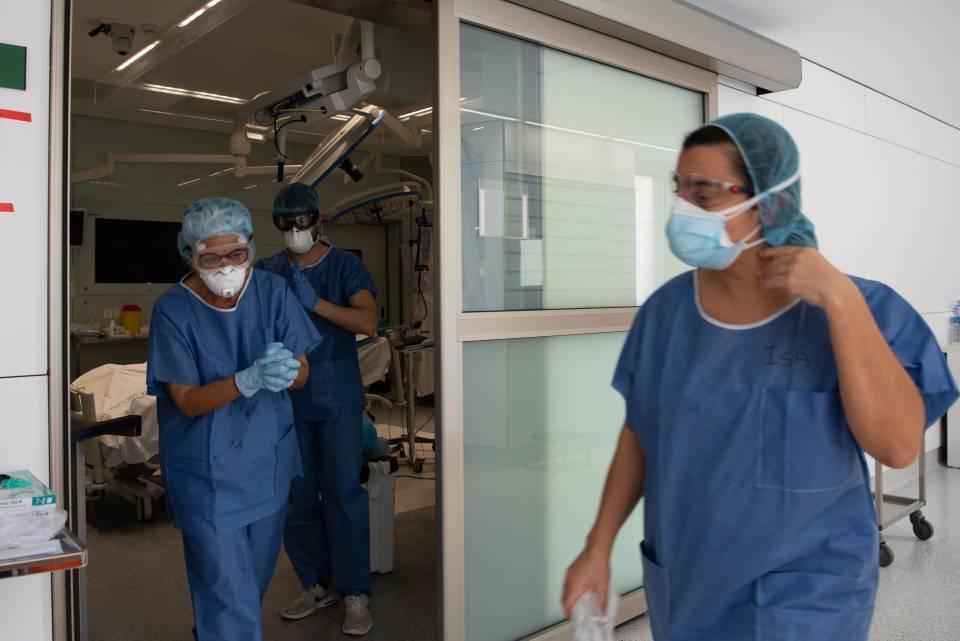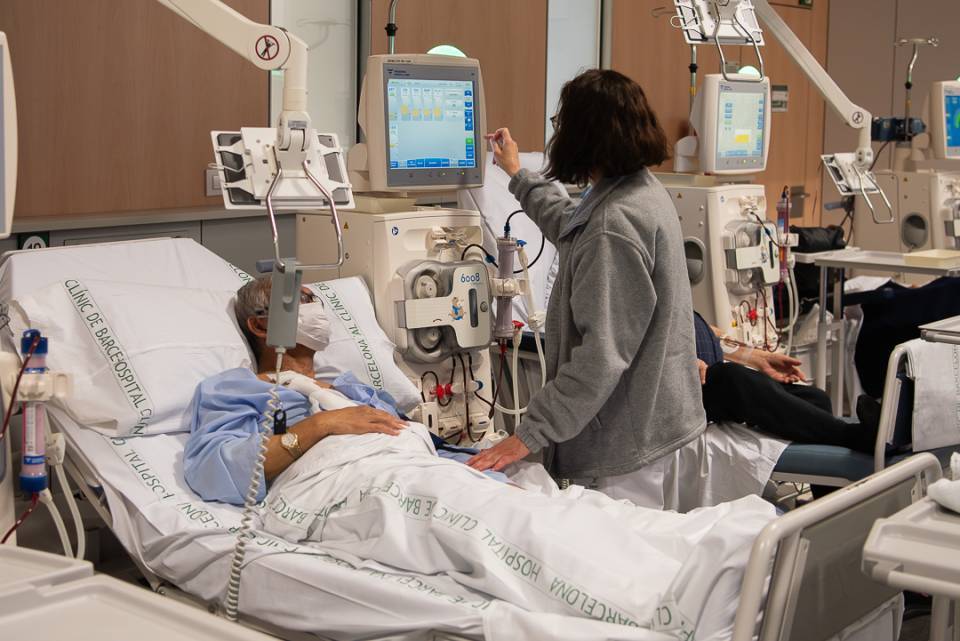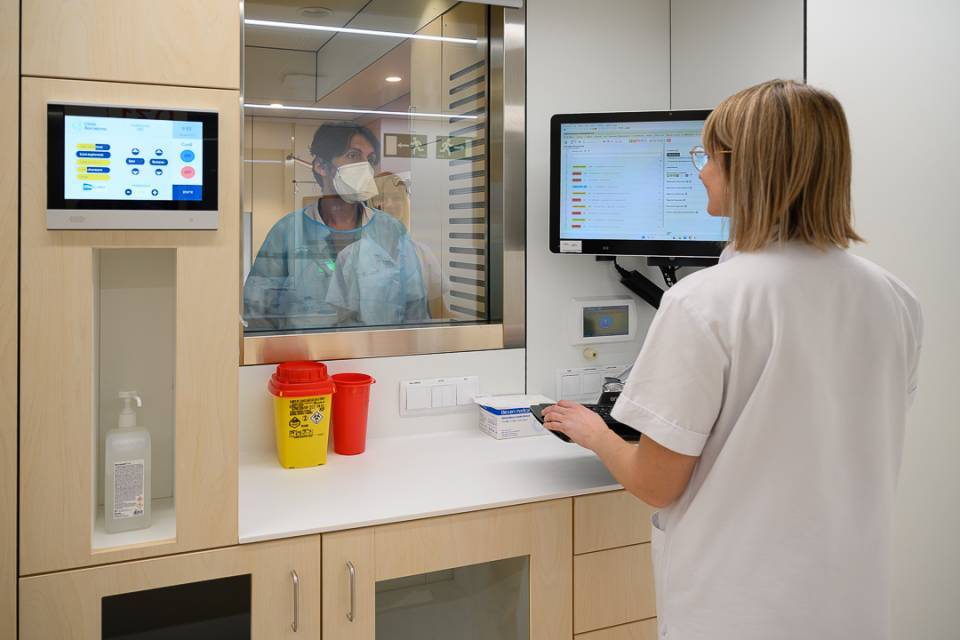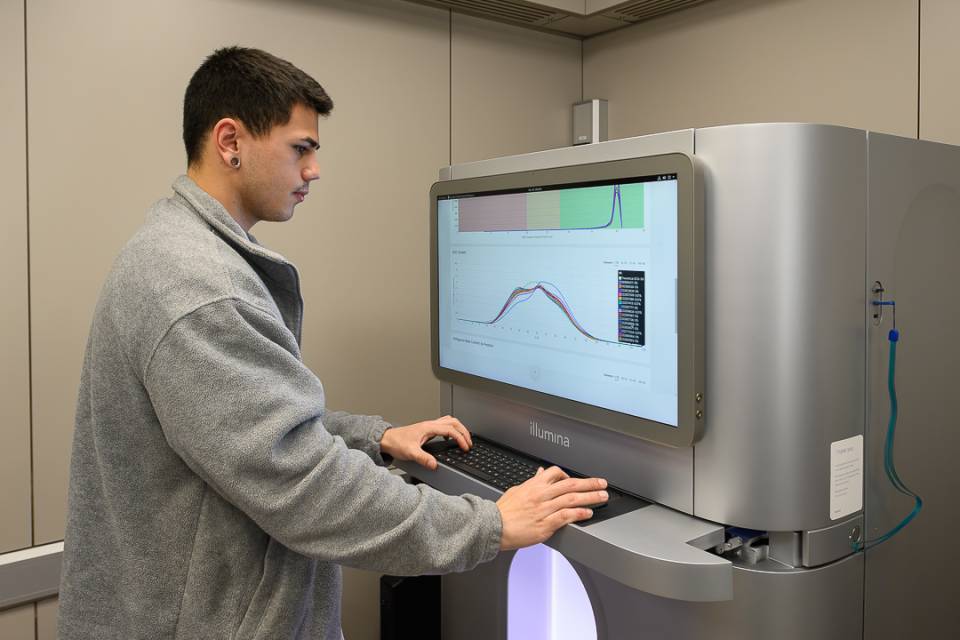Researchers at the Hospital Clinic and the Barcelona Institute for Global Health (ISGlobal) have participated in an international, multicentre trial that shows that hospitalized patients with severe COVID-19 and lung involvement who received remdesivir recovered faster than patients who received placebo.
The study, called Adaptive COVID-19 Treatment Test (ACTT), included 1,063 patients and was coordinated by the US National Institute of Allergy and Infectious Diseases (NIAID) at the National Institutes of Health (NIH). In Spain, it was coordinated by the Infectious Disease Service at the Hospital Germans Trias. The results were presented yesterday at the White House, by NIAID director Anthony Fauci.
Based on a review of the data by the independent Data Safety Monitoring Board (DSMB), a preliminary analysis indicates that remdesivir was better than placebo from the perspective of the primary endpoint, which was time to recovery. This metric is frequently used in clinical trials for influenza.
Preliminary results indicate that the recovery time in patients who received remdesivir was 31% shorter than in those who received placebo, with a 4-day reduction in hospitalization time. Specifically, the average recovery time was 11 days for patients treated with remdesivir, compared with 15 days for the placebo group. The results also suggest a benefit in survival, with a lethality of 8% for the treated group versus 11.6% for the placebo group.
The study was coordinated in Spain by Roger Paredes, head of the Infectious Diseases Unit in the Germans Trias Hospital and researcher at the IRSICaixa, and involved the participation of the Hospital Clínic, under the coordination of Jose Muñoz, Head of the International Health Service at Hospital Clinic and ISGlobal researcher.
“Despite the rapid spread of this pandemic, we need to keep a rigorous methodology when performing clinical trials if we want to obtain reliable results. This study is the result of a rigorous work and the preliminary results are very promising, but we will have to wait for the final analysis to assess the final efficacy of remdesivir and the best time for its administration,” says Jose Muñoz.
“This study opens a path towards COVID-19 treatment, probably through the development of new drugs or combined treatments.This is a significant advance in the handling of the disease and highlights the value of the clinical research in our centres, which have demonstrated once again their capacity to provide scientific evidence in such a short time”, says Paredes.




